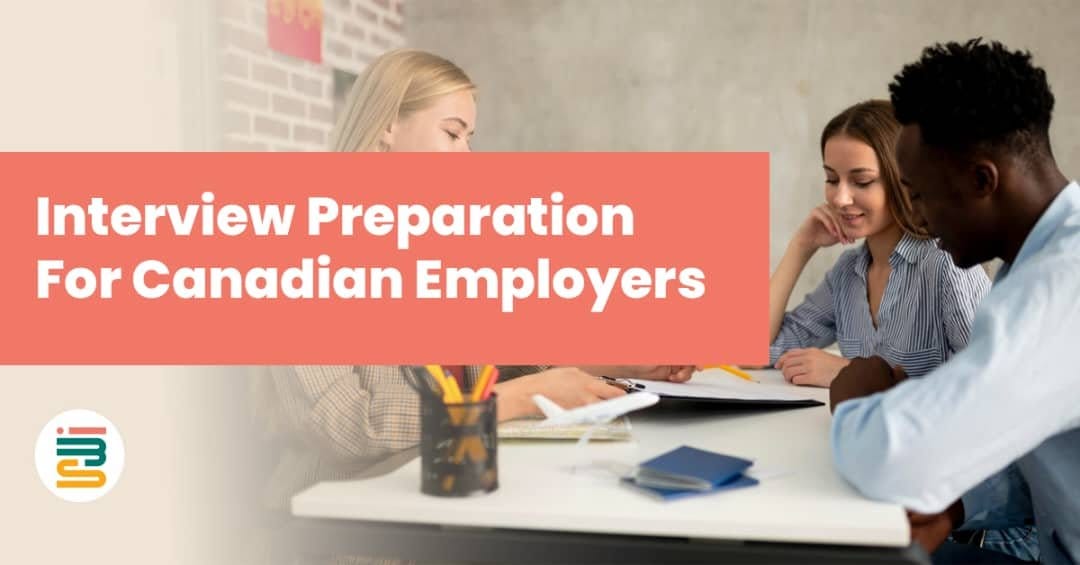Interview preparation for Canadian employers is something many job seekers worry about, and for good reason. Whether you’re new to Canada, applying from abroad, or a local resident, the thought of sitting in front of a hiring manager can feel stressful. Questions like “What are they looking for?” or “How do I make a good impression?” can leave you feeling unsure.
But here’s the truth: getting ready for an interview doesn’t have to be confusing. By knowing what Canadian employers expect and preparing the right way, you can boost your confidence and stand out. From how you dress to how you answer questions, every detail matters.
In this post, we’ll share practical tips and advice that are specific to Canadian workplaces. These tips aren’t just helpful; they’re what many successful candidates have used to secure great jobs. Whether it’s learning the common questions asked, knowing how to talk about your skills, or understanding workplace culture, this guide will set you up for success.
Let’s dive in and make sure you’re ready to impress. With the right preparation, you’ll walk into that interview room feeling confident and ready to show why you’re the best fit.
Why Preparing for Canadian Job Interviews is Crucial
Preparing for job interviews is important in any country, but it is especially critical in Canada due to its unique workplace culture and high competition for roles. Many Canadian employers value strong communication skills, a professional demeanor, and adaptability. Being well-prepared shows your seriousness and ensures you stand out among other candidates.
Key reasons preparation matters:
- Canadian job interviews often assess both soft skills and technical skills.
- Employers may expect you to demonstrate familiarity with workplace diversity and collaboration.
- Tailored preparation increases your confidence and helps you leave a lasting impression.
What Makes Canadian Job Interviews Unique
Canadian job interviews are characterized by a blend of professionalism and a friendly tone. Employers often look for candidates who align with their company values and demonstrate a genuine interest in the role.
Key Elements of Canadian Interviews:
- Behavioral Questions: Questions like, “Can you describe a time you solved a difficult problem?” aim to assess your past experiences.
- Cultural Fit: Employers seek candidates who value collaboration, diversity, and inclusion.
- Structured Responses: Using frameworks like the STAR method is often appreciated.
How to Research Canadian Employers Before Your Interview
Understanding your potential employer is key to acing your interview. Research shows that candidates who show specific knowledge about a company are more likely to succeed.
Best Practices for Company Research:
- Study the Website: Learn about the company’s mission, vision, and values.
- Check LinkedIn: Research the company’s page and the profiles of key team members.
- Read Recent News: Knowing recent achievements or initiatives can set you apart.
- Understand the Industry: Familiarize yourself with trends and challenges in the sector.
What Should You Know About Canadian Workplaces Before an Interview
Canadian workplaces are known for their inclusivity, diversity, and professional communication standards. Understanding these norms can help you navigate your interview successfully.
Key Features of Canadian Workplaces:
- Workplace Diversity: Many organizations embrace multiculturalism and value diverse perspectives.
- Professional Communication: Clarity, politeness, and active listening are highly valued.
- Work-Life Balance: Employers often emphasize a balance between personal and professional life.
What Are Common Canadian Job Interview Questions
Knowing what questions to expect during a Canadian job interview can help you prepare better answers. In Canada, interviews often focus on your past experiences, problem-solving skills, and ability to work with others. Here are some types of questions you might face:
Behavioral Questions
These questions aim to understand how you’ve handled situations in the past:
- “Can you tell me about a time you faced a challenge and how you overcame it?”
- “Describe a situation where you had to work as part of a team.”
Pro Tip: Use real examples from your work or volunteer experience to answer these questions during your Canadian job interview preparation.
Situational Questions
Situational questions test how you would handle specific scenarios:
- “What would you do if you had to meet a tight deadline?”
- “How would you handle a conflict with a coworker?”
Employers in Canada want to see your problem-solving skills and ability to think on your feet.
Technical Questions
These questions depend on your field and test your job-specific skills. For example:
- If you’re in IT, they might ask, “How would you troubleshoot a network outage?”
- In accounting, a question could be, “How do you handle discrepancies in financial records?”
General Questions
- “Can you tell us about yourself?”
- “Why do you want to work for our company?”
- “Where do you see yourself in five years?”
Researching common Canadian job interview questions and preparing your answers can help you feel confident on the big day.
How Should You Structure Your Answers
Answering interview questions effectively is crucial. A great way to organize your responses is by using the STAR method:
- Situation: Describe the situation or challenge you faced.
- Task: Explain what you were responsible for.
- Action: Talk about the steps you took to handle it.
- Result: Share the outcome and any lessons learned.
For example:
Question: “Can you tell me about a time you improved a process at work?”
Answer:
- Situation: “In my last job, we faced delays in delivering reports.”
- Task: “I was responsible for finding a solution to speed things up.”
- Action: “I automated parts of the reporting process using Excel macros.”
- Result: “This reduced delivery time by 30% and improved accuracy.”
Practicing the STAR method can make your answers clear and focused, helping you succeed in Canadian job interviews.
How Do You Showcase Soft and Technical Skills in Canadian Interviews
Employers in Canada value both soft skills (how you interact with others) and technical skills (your job-specific knowledge). Here’s how to showcase them effectively:
Soft Skills
- Teamwork: Share an example of a successful team project.
- Communication: Highlight your ability to explain complex ideas simply.
- Problem-Solving: Talk about how you’ve resolved issues at work.
Technical Skills
- Be ready to discuss tools, software, or certifications relevant to the job.
- Provide examples of how you’ve used these skills to achieve results.
Linking Skills to the Job
When answering questions, explain how your skills meet the company’s needs. For example:
- “I’ve used my problem-solving skills to manage tight deadlines, which aligns with your fast-paced work environment.”
Highlighting these abilities will help you stand out during Canadian job interview preparation.
How to Navigate Canadian Interview Etiquette
Proper etiquette is essential for creating a good impression. Here are 10 detailed tips:
- Dress Appropriately: Wear formal or business casual attire unless otherwise stated.
- Arrive Early: Being 10–15 minutes early shows respect for the interviewer’s time.
- Greet Professionally: Offer a firm handshake (if in person) and smile warmly.
- Maintain Eye Contact: It shows confidence and attentiveness.
- Listen Carefully: Don’t interrupt; wait for the interviewer to finish speaking.
- Be Polite: Use phrases like “Thank you” and “I appreciate this opportunity.”
- Avoid Slang: Speak clearly and use professional language.
- Bring Copies of Your Resume: Even for virtual interviews, have it handy for reference.
- Express Gratitude: Thank the interviewer for their time at the end.
- Follow Up: Send a thank-you email within 24 hours.
Mastering Canadian job interview etiquette can help you make a strong impression.
What Are the Most Common Mistakes to Avoid Interview Preparation for Canadian Employers
Avoiding mistakes can increase your chances of success. Here are 10 common ones:
- Not Researching the Company: Know their values, products, and recent news.
- Giving Vague Answers: Be specific and back up your points with examples.
- Talking Too Much: Keep your responses concise and relevant.
- Failing to Prepare Questions: Ask about the role, team, or company culture.
- Neglecting Body Language: Avoid slouching, fidgeting, or crossing your arms.
- Underestimating Virtual Interviews: Test your tech and ensure a quiet environment.
- Not Practicing Answers: Rehearse common questions to build confidence.
- Focusing Only on Yourself: Show how you can contribute to the company.
- Being Late: Arriving late is a major red flag.
- Forgetting to Follow Up: Always send a thank-you email after the interview.
Avoid these pitfalls during Canadian job interview preparation to improve your chances.
How Do You Prepare for Phone and Video Interviews in Canada
Virtual interviews are common in Canada. Here’s how to prepare:
- Test Your Tech: Check your internet, microphone, and camera beforehand.
- Choose the Right Background: A clean, quiet space is ideal.
- Practice Speaking Clearly: Virtual interviews can make communication tricky.
- Dress Professionally: First impressions still matter, even online.
- Keep Notes Handy: Use a notebook to jot down key points, but avoid reading verbatim.
Taking these steps can set you up for success in Canadian job interviews.
What Do You Need to Know About Canadian Work Experience Questions
Employers in Canada often ask about your work experience. If you don’t have local experience, here’s how to handle it:
- Highlight Transferable Skills: Focus on skills like teamwork, problem-solving, or leadership.
- Show Adaptability: Share examples of how you’ve adjusted to new roles or environments.
- Leverage Volunteer Work: Mention volunteering as a way to gain local experience.
Answering these questions effectively can boost your confidence in Canadian job interview preparation.
How Should You Follow Up After an Interview
Following up after an interview shows professionalism. Here’s what to do:
- Send a Thank-You Email: Thank the interviewer and reiterate your interest.
- Be Specific: Mention one or two things you discussed that excited you about the role.
- Act Quickly: Send the email within 24 hours.
This small step can leave a lasting impression during Canadian job interview preparation.
FAQs About Canadian Job Interviews
- What should I wear to a Canadian job interview?
Formal or business casual attire, unless otherwise stated. - How do I prepare for behavioral questions?
Use the STAR method for clear, structured answers. - Do Canadian employers expect follow-up emails?
Yes, a thank-you email is standard and appreciated. - What if I don’t have Canadian work experience?
Focus on transferable skills and adaptability.
Practical Tips for Immigrants Facing Canadian Job Interviews
Immigrants may face unique challenges, but these tips can help:
- Learn Workplace Culture: Canadian workplaces value collaboration and punctuality.
- Improve Language Skills: Take courses to strengthen your English or French.
- Build a Network: Join industry groups or attend events to meet professionals.
These tips will support you in Canadian job interview preparation as an immigrant.
Conclusion
Canadian job interview preparation is your ticket to unlocking job opportunities in Canada. By practicing common questions, learning workplace etiquette, and showcasing your unique skills, you can leave a strong impression.
For personalized coaching and expert guidance, book a session with IBS Consulting. We specialize in helping job seekers like you succeed in Canadian job interviews. With proven strategies and support, you’ll feel confident and ready to ace your next interview.
Contact IBS Consulting today and take the first step toward your dream job in Canada.



